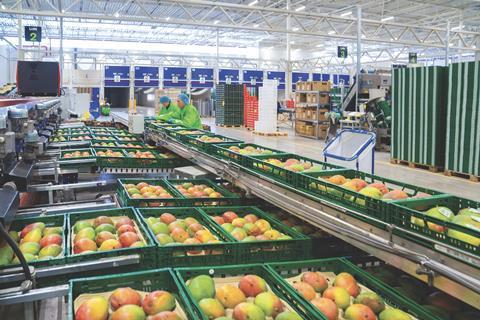Benedikt Mangold, CEO of BayWa Global Produce, discusses global market challenges and newly launched brands ahead of Asia Fruit Logistica in Hong Kong
How is 2023 shaping up for BayWa? How are your key markets faring?

Benedikt Mangold: It is an open secret that inflationary pressure and difficult economic conditions in many markets, especially in the UK and Europe, and reduced consumer demand have affected our industry well into 2023. Premium products in particular have been affected by this development.
To boost consumption, food retailers in Germany, for example, have focused heavily on promotions, especially in apples, which has led to an unsatisfactory price situation which does not meet the increased production costs of suppliers and growers.
Looking at the European apple season to come, we expect to see a much more friendly market resulting from a smaller forecasted crop and cleared 2022 stocks.
In most Asian countries, including all of Southeast Asia, Japan, Taiwan and Hong Kong, we see a good consumer climate for our premium apple brands Jazz and Envy.
China has gradually regained momentum after Covid-19-related hurdles. We are very pleased about these developments as this year’s Southern Hemisphere apple season is clouded by the circumstances caused by severe weather events in New Zealand.
Your Dutch business TFC Holland has strong ties with Asia, doesn’t it?
BM: With TFC we are sourcing exotic produce from more than 50 countries worldwide. Asia is an important origin for us, especially when it comes to pomelo, ginger and dragon fruit. We see a strong local demand for exotics in several producing countries.
In this environment, we profit from our long-standing relationships with our growers, focusing on shortest possible supply chains to secure volumes for our European customers. Vertical integration of our main products like mangoes and avocados allows us to guide both variety selection and cultivation according to our customers’ demand.
We are directly involved in Africa and South America as owners and financing partners, and we are committed to extending our activities at the origins of our produce to secure supply. We will further invest in our processes along our value chain.
What other important trends have you noticed in Asia?
BM: The global fresh produce trade is recovering from the impacts of the Covid-19 pandemic which resulted from lockdowns, and disrupted supply chains and logistics. The situation has improved, and we see strong economic and consumer sentiment especially for premium qualities and brands in most of Asia.
Looking at trade flows, fruit shipments to growth markets in Asia are growing and so are fresh fruit imports in different Asian countries. India, for example, has doubled its fresh fruit imports in 2021, and we see similar developments in countries like China and Indonesia. We are looking forward to participating at Asia Fruit Logistica where our shared BayWa Global Produce brings together our colourful global portfolio.
See Eurofruit September for the full interview



